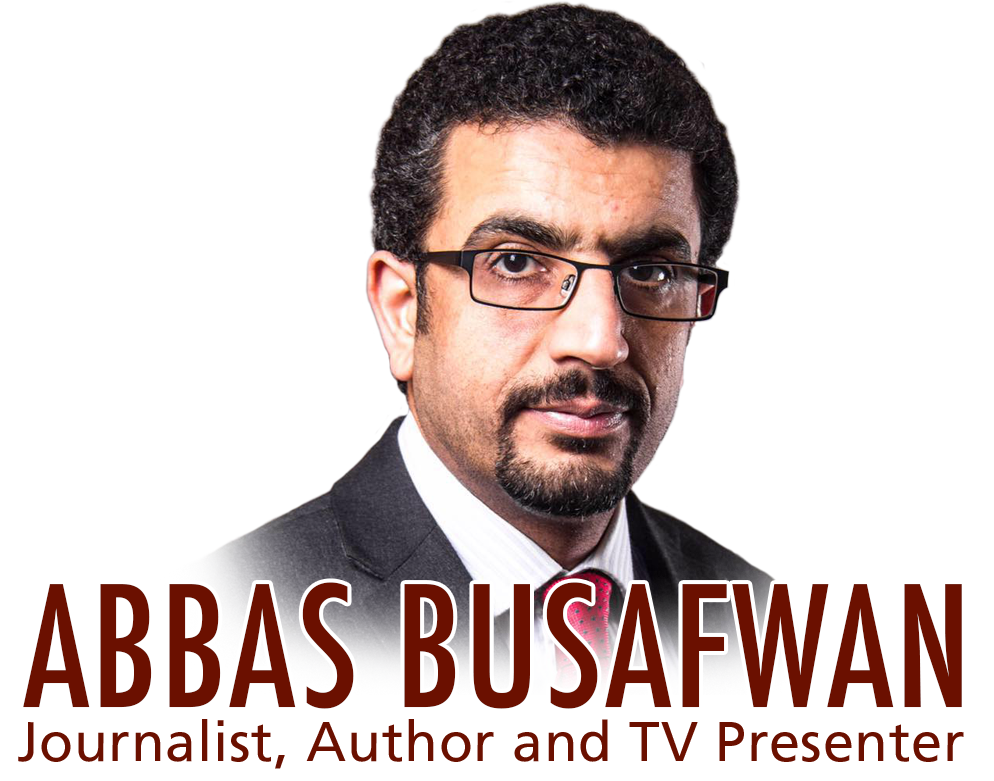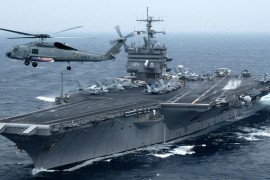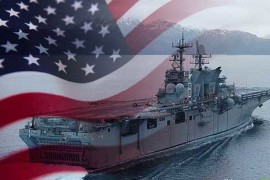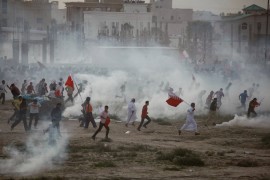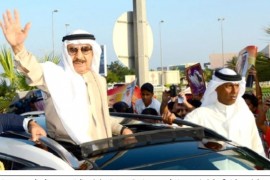There are many reasons that can be driven to emphasize that the time has come to take punitive measures against Bahrain, however this move was probably supposed to take place since February 17th, 2011 when the army and Bahraini police mounted a bloody attack on the protesters at the Pearl Roundabout. It was clear that Bahraini authority already decided on the security solution in dealing with the pro-democracy, which was confirmed a month later, when the Bahraini authorities summoned the Saudi and UAE forces, under the cover of the Peninsula Shield, to suppress and kill the protesters.
In November 2011, the King of Bahrain announced his acceptance of the recommendations of the Bahrain Independent Commission of Inquiry (BICI) – known as Bassiouni Committee, which was formed by himself in July of the same year. The committee revealed stun results of the number of violations, their type and breadth, that were carried out by state’s military, judicial, media and other various civil directorates against the opponents citizens who came out in mass demonstrations, calling for democracy, following the example of Tunisia and Egypt revolutionary moves the Arab spring.
And after a long period of such acceptance of the recommendations and the promises to implement them, almost various relevant neutral parties could agree that the main and majority of the recommendations have not been implemented. In a paper on this, POMED sees that “the government of Bahrain has implemented 3 recommendations in full, and 15 recommendations in part, and 6 recommendations have not been implemented, while the uncertainty surrounds the extent of the implementation of 2 recommendations, out of 26 recommendations of the BICI, and the most prominent recommendations are pertaining to the policy to stop the impunity and the release of political prisoners” (Al-Wasat newspaper, November 22nd, 2012).
In September 2012, the Bahraini government announced its agreement to fully implement 145 recommendations and partially implement another 15 recommendations. These recommendations were agreed upon by the members of the Human Rights Council in May 2011 during the periodic review held for the Kingdom of Bahrain with respect to its status in human rights aspects.
Bahrain had failed miserably in their pledges, and the overall human rights reports indicate that the volume of violations is still great, and takes a systematic and continuous approach, the more it seemed to the authorities that the repressive measures could not stifle the popular and widespread protests.
After two years of demonstrations, and more than a year of the state’s promises to implement the recommendations of the Bassiouni Committee, and its utter failure to do so, including the failure to conduct a genuine national dialogue and reconciliation, what does the international community envisage? What hopes can be obtained out of a dictatorial authority undermined the local community and hurt the regional security in a volatile region? Will the international community make recommendations that are not implemented, to no end? Should not rather be supposed to take escalated punitive measures?
And what are the opposition political parties waiting for to be persuasive by adding another important element i.e. sanctions, as part of its ongoing peaceful strategy?
In fact, it could be argued that the current approach of Al Wefaq, major Bahraini opposition associations, undermines some efforts by Bahraini and Western human right and parliamentary personalities in putting political and economic pressure on Al Khalifa dictatorship regime to make deep political reforms.
You may hear this opinion of more than one Arab and Western activists that are attempting to perform pressure in order to prevent Bahrain hosting, between upcoming 19 – 21 April, the 2013 version of Formula One race.
And they add: If some of the main opposition parties are not supporting punitive measures against the regime, how could the world support them?
President of the International Federation of the Formula One Bernie Ecclestone usually responding to seekers of canceling F1 by saying: do not be more royal than the king; the main opposition (Al Wefaq) supports hosting the race in Manama, then why you are against it!?
In 2011, the race was canceled, which was scheduled in March, due to the protest rally in the Pearl Roundabout, and the security measures adopted by the regime against the pro-democracy peaceful protesters.
Even though Al Wefaq gave a positive response to the International Federation of the Formula for organizing the race in October of the same year (2011), the atmosphere was tense and unstable and the technical problems resulting from changing the date of race which conflicted with the rest dates for the contestants, led the international Federation to take the decision to cancel the race. The decision had heavily harmed the regime, and confirmed the credibility of the media and human rights reports that have long pointed out the instability of Bahrain, and that the morphology of its capital Manama and surrounding areas are only a security scary grip.
The surprise was in April 2012, when a former MP of Al Wefaq Dr Jassim Hussein, visited the Bahrain International Circuit, and appeared in front of global TVs, saying: “I can tell you that most people in Bahrain are delighted for the return of Formula One to Bahrain”; he continued “The protests will certainly exist. Has existed prior to the race, and will be present through it, and will continue after it, as these are nothing to do with the race!”
Although Al Wefaq had distanced itself from Dr Hussain’s remarks, describing his visit and behavior as a personal, nonetheless that visit by a former MP who belongs to a group party known by its discipline partisan in general, could not happen if Dr Hussein concluded a negative attitude by the association to which he belongs; and in any case it is not a journalist diligent, as the public and official opinion of Al Wefaq supports hosting the race.
Al Wefaq, led by the moderate Sheikh Ali Salman, calling for the reform – not fall – of the regime, means on keeping the door open for communications with the regime, and perhaps from this aspect was and still avoids taking positions to avoid sending wrong messages to the regime and to the West as well, or be construed as an expression of a radical stance. In addition, Al Wefaq wants to reflect a positive political force disrespectful of its wounds who seeks to promote Bahrain and finds the sporting and various political events a tributary to the economy of the small Kingdom.
This behavior, however, after two years of the start of the February 14 (2011) uprising, may have a negative impact on the performance of the regime, and strengthen the power of its extremists, who claim that their repressive policies had saved the regime from falling, and did not harm its international relations.
In all cases, it is certain that Al Wefaq’s politics did not lead to the strengthening of Crown Prince Salman bin Hamad Al Khalifa, who is seen by Al Wefaq as a moderate, and I personally see him unable to form a balance with the powerful Al-Khawaled (the extremists of Al Khalifa royal family) led by the Minister of the Royal Court Khalid bin Ahmed Al Khalifa.
The American researcher at the Carnegie Endowment for Peace Frederick Cons in a paper that was recently published and entitled: “The unstable ally: the trouble in Bahrain and the US policy,” recommended Washington to “wisely use the power of the economic and multilateral impact. The criticism from multilateral forums has brought some positive shifts in the public policy. Also, more specific financial sanctions against the officials of the regime involved in human rights violations can send a stronger message”
I can claim, that if the major opposition parties, is not ready to speak out publicly against the various events that are exploited by the regime to burnish its image, Al Wefaq is not supposed to wait for a better position by the international bodies, many of which are originally pro-existing regime.
The Bahraini regime has always exploited sporting events (such as Formula One and Gulf football matches) or political events (such as Manama dialogue and Gulf summit) to say that the opposition represents a minority that does not worry the kingdom in excluding it from ruling.
If Al Wefaq does not encourage virtual punitive measures, it means that it’s in front of a long way to go in order to be convinced of the importance of adopting deeper economical punitive measures against the regime, as recommended and seen.
The strategic approach of Al Wefaq, which is based on the peaceful popular movement, and the centrality of the relationship with the West, and not to cut the lines of communication with the regime, may be proven its efficacy, at least compared to the devastation being done to Syria, which the regime bears its largest destruction, however, the armed opposition fueled the policy of bloodshed.
It does not appear that Al Wefaq would adopt policies that condemn the Bahraini regime, such as incitement to non-hosting Formula One; that would take out the Bahraini opposition out of its peaceful approach, nonetheless it would possibly confirmed its approach by this action.
Let us remember that since the start of the first race in 2004, the occasion remains to be invested politically, and opposition’s events during the race alongside with the fear of the regime from sabotaging this international event had opened the doors for dialogue between the opposition and regime, represented at that time by Dr. Majeed Al Alawi, while he was serving as Minister of Labor and Social Affairs. I personally followed the details of the dialogue, which did not come to a conclusion, while I was working for Al Wasat newspaper.
Certainly, the struggle over Formula One took a different turn when the opposition calling for the overthrow of the regime managed to prevent hosting it in 2011, which meant a real challenge by the regime that must have won it, giving the conflict and debate on hosting the race in next April a political feature.
If the race is conducted at Sakhir Circuit (South Bahrain), the opposition will exploit the presence of the media to focus on the political demands and the crisis of detainees athletes, however, that the impact – with no doubt – will be bigger on the regime while losing the most important events who invests to polish its image, and perhaps the opposition led by Al Wefaq takes the first step, which may encourage taken some other more painful steps for the regime, because it is clear that the pro-democracy message, despites its heyday, hustle and breadth, has not received by the regime yet.
